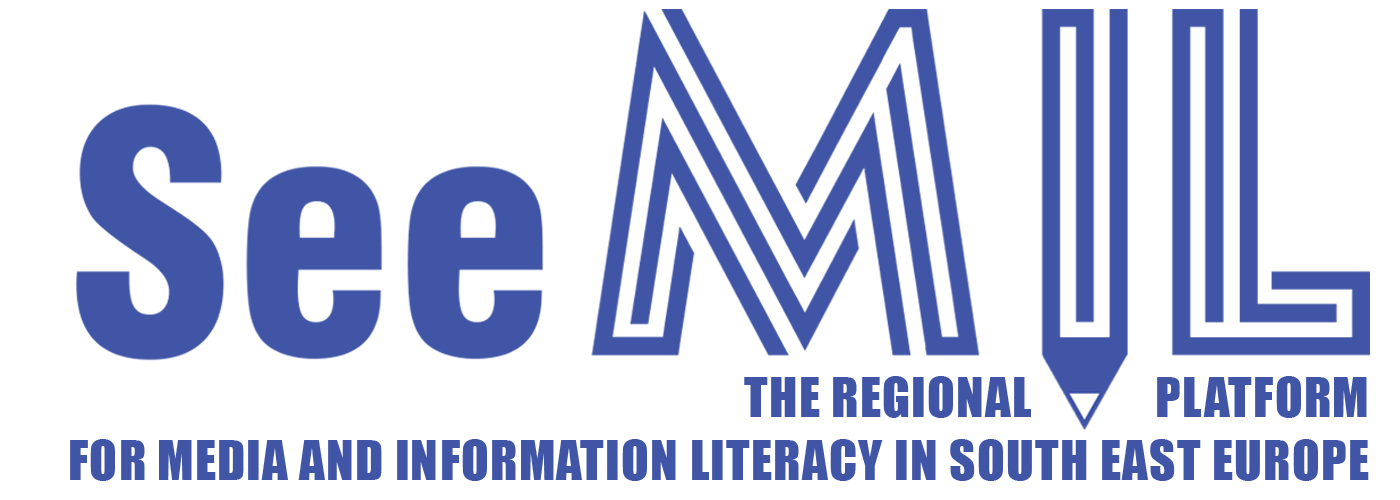“Through our partnership with UNESCO, we have developed a curriculum and the necessary material and moved forward with introducing Media and Information Literacy in the formal education in Albania,” said Remzi Lani, Head of the Albanian Media Institute. “The digital world is inevitably at the core of learning and, to use its benefits, we need to make sure that the youth is given the know-how when it comes to critically assessing information, especially online.”
Thanks to UNESCO’s support provided under the framework of the EU-funded project “Building Trust in Media in South East Europe and Turkey – Phase 2,” the Albanian Media Institute (AMI) has laid the groundwork for piloting Media and Information Literacy (MIL) in primary and secondary schools in the country. The piloting is about to start in 10 schools of the country as of the end of the year 2021 and later expand to at least another 10 schools.
Based on UNESCO’s MIL model curriculum, the Albanian Media Institute and partners developed a MIL curriculum for Albania for the use of teachers working with grades 6-9 and 10-12. The elaboration of that curriculum reflected the suggestions of various stakeholders involved in five online workshops throughout the last three months of the year 2020. The workshops connected teachers from different primary and secondary schools to a team of MIL experts in charge of developing the curriculum.
“We have collaborated with Quality Assurance Agency for Pre-university Education (ASCAP), whose Director monitored the development of the curriculum. The ASCAP used their standard methodology for curricula development, while the workshops were crucial for understanding the needs of those who will be using this curriculum, notably the teachers.”
Remzi Lani, Head of the Albanian Media Institute
The curricula will be piloted in at least 20 schools across Albania – 10 primary and 10 secondary schools that were selected in cooperation with the Ministry of Education, Sports and Youths, and Regional Education Departments, according to the criteria agreed with ASCAP. To complete the material needed for piloting MIL, the tools for teachers have been developed reflecting the content of the MIL curriculum.
“The teaching material was created through a comprehensive methodology that will enable teachers to effectively transfer their knowledge to students,” said Remzi Lani. “The goal is to encourage both students and teachers to seek knowledge through research, changing the teaching and the learning process at the same time,” he added.
In parallel, the AMI updated the National MIL Strategy and Position Paper following the two national multistakeholder consultations, held online in July and December 2020, and 27 semi-structured in-depth interviews with representatives of relevant authorities, CSOs, and international stakeholders, whose input was reflected in the document through recommendations. As a result, the recommendations encompass MIL in formal, at both pre-university and university levels, and non-formal and informal education. Some of the recommendations are to include MIL in extra-curricular activities in schools, such as setting up small radio stations in schools, ensure MIL training of policymakers, and organize events to synergise the MIL initiatives in the region.
Next step towards the piloting of MIL includes the development of monitoring and assessment tools to keep track of the results and impact of the activities. “Well-designed tools to monitor and evaluate the impact of the MIL piloting will be fundamental, especially considering how these can be replicated across the region,” said Sinisa Sesum, Head of the UNESCO Antenna Office in Sarajevo of the Regional Bureau for Science and Culture in Europe.
For this and other tasks waiting for us this year, such as teacher training and piloting, UNESCO is continuing its partnership with the AMI
Sinisa Sesum, Head of UNESCO Office in Sarajevo of Regional Bureau for Science & Culture in Europe
Along with piloting MIL in formal education, the second phase of the UNESCO EU-funded project “Building Trust in Media in South East Europe and Turkey” is piloting MIL in informal education by collaborating with youth organisations from South East Europe and Turkey. In addition, the project aims to support quality journalism in the fight against disinformation, as well as self-regulation mechanisms to ensure professional standards in media.

